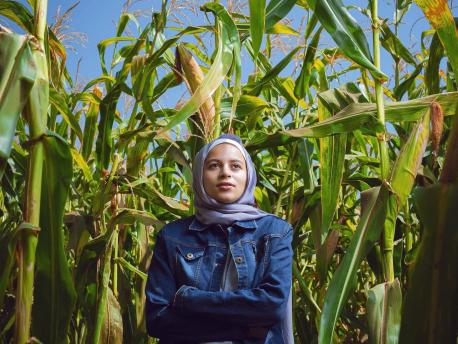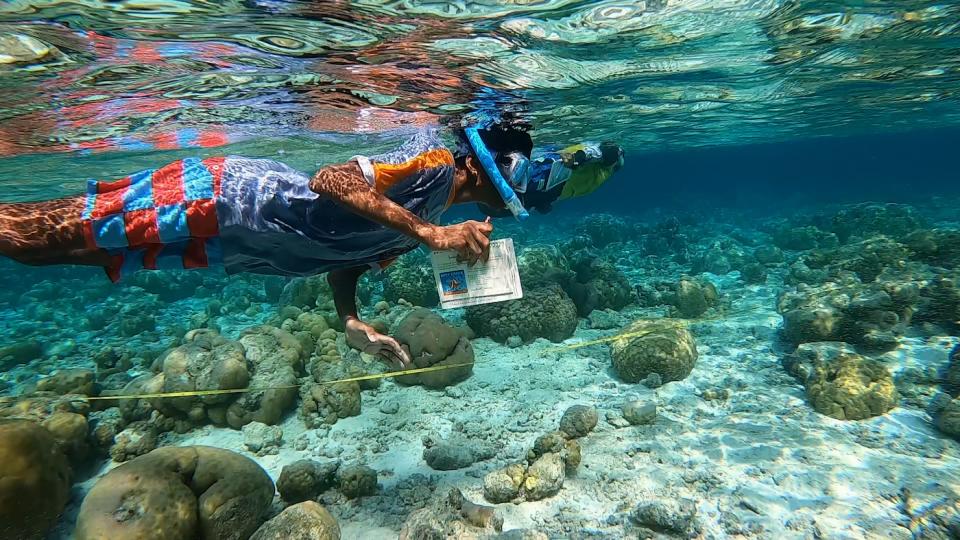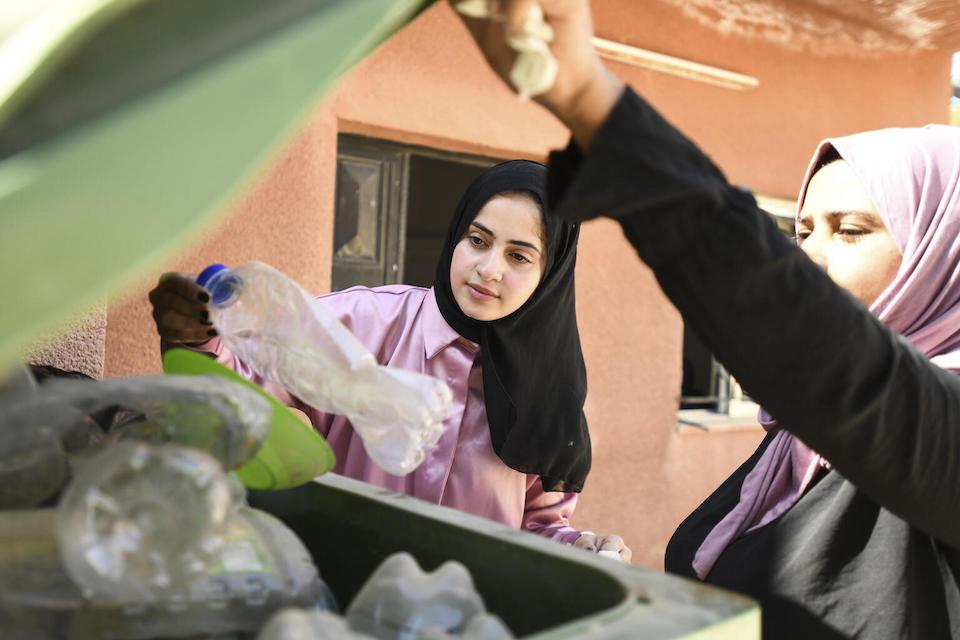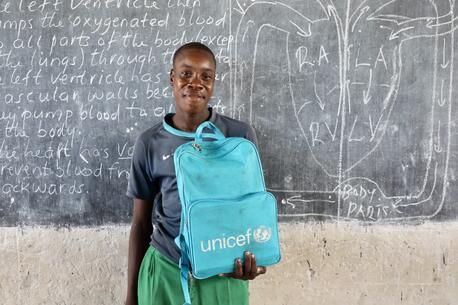
Climate Change and Youth Engagement
UNICEF is committed to mobilizing young people to spur climate action at the community, national and global level. Learn more, including how to help.
The Green Rising: Empowering youth to be champions for the planet
Floods, droughts, heat waves and other painful signs of the climate crisis have fueled high anxiety among many young people. But they haven't lost hope. They are determined to so something about climate change, and UNICEF intends to help them succeed.
Related: From Eco-Anxiety to Eco-Optimism, a UNICEF USA survey
With support from UNICEF and others, youth are taking action in a variety of ways in an effort to enhance the well-being of their communities and to safeguard their own futures.
As a leading partner in The Green Rising, an initiative launched in 2023, UNICEF is ramping up engagement efforts with youth around the world — helping to get youth-led projects off the ground, expanding education and skills building opportunities and connecting youth with resources and expertise in key UNICEF program areas.
The goal is to help youth expand their networks, accelerate and scale their activities and also measure and share their impact — thereby helping to advance a green transition that is equitable and just.
UNICEF is also instrumental in enabling youth participation in climate negotiations and related events at the annual UN Climate Change Conference, or COP (Conference of the Parties).
UNICEF has long prioritized youth engagement around climate issues, providing platforms for youth to share their ideas and to advocate for global action. That longstanding, ongoing commitment to engaging youth around climate action is rooted in the belief that young people have the power to influence society.
“We need young people in the rooms where decisions about our planet are being made, because young people are not only on the front line of the climate crisis, but we are also on the front lines of the fight for climate justice,” UNICEF Goodwill Ambassador Vanessa Nakate says.

Through direct interactions with youth across the globe, UNICEF has found that young people are eager to lead projects that build climate resilience in local schools, health and community centers and neighborhoods; get trained in green skills and drive the green transition across sectors; and protect ecosystems through water and energy conservation.
They want to advance clean energy and other solutions to help local communities adapt and better prepare for future climate events. They wish to model sustainable lifestyles and advocate for better government and business policies and practices, and more financing for climate mitigation measures.

Theory of change: from climate action and advocacy to a better environment
Mandated to safeguard and promote child rights worldwide, UNICEF focuses on the most vulnerable, marginalized children and communities. So when it comes to engage youth around climate action, UNICEF looks to advance leadership opportunities for youth from marginalized backgrounds.
Effective and coordinated collective action at a grassroots level is the first step; the theory is change holds that others will then follow and change their own behavior, which then catalyzes broader systemic and cultural changes, which then move governments and private sector leaders to respond, generating additional resources for climate initiatives that protect ecosystems, preserving water sources and forests, use cleaner energy, turn waste into energy — all the things that help protect communities against future climate events.

A green movement that’s 11 million strong — and growing
By the end of 2024, The Green Rising had exceeded its initial goal, effectively galvanizing 11 million young people to join the movement as volunteers, innovators and change makers. And their numbers continue to grow.
Learn more about The Green Rising.
Learn more about how UNICEF is responding to the climate crisis.
Support UNICEF's mission. Donate today.
